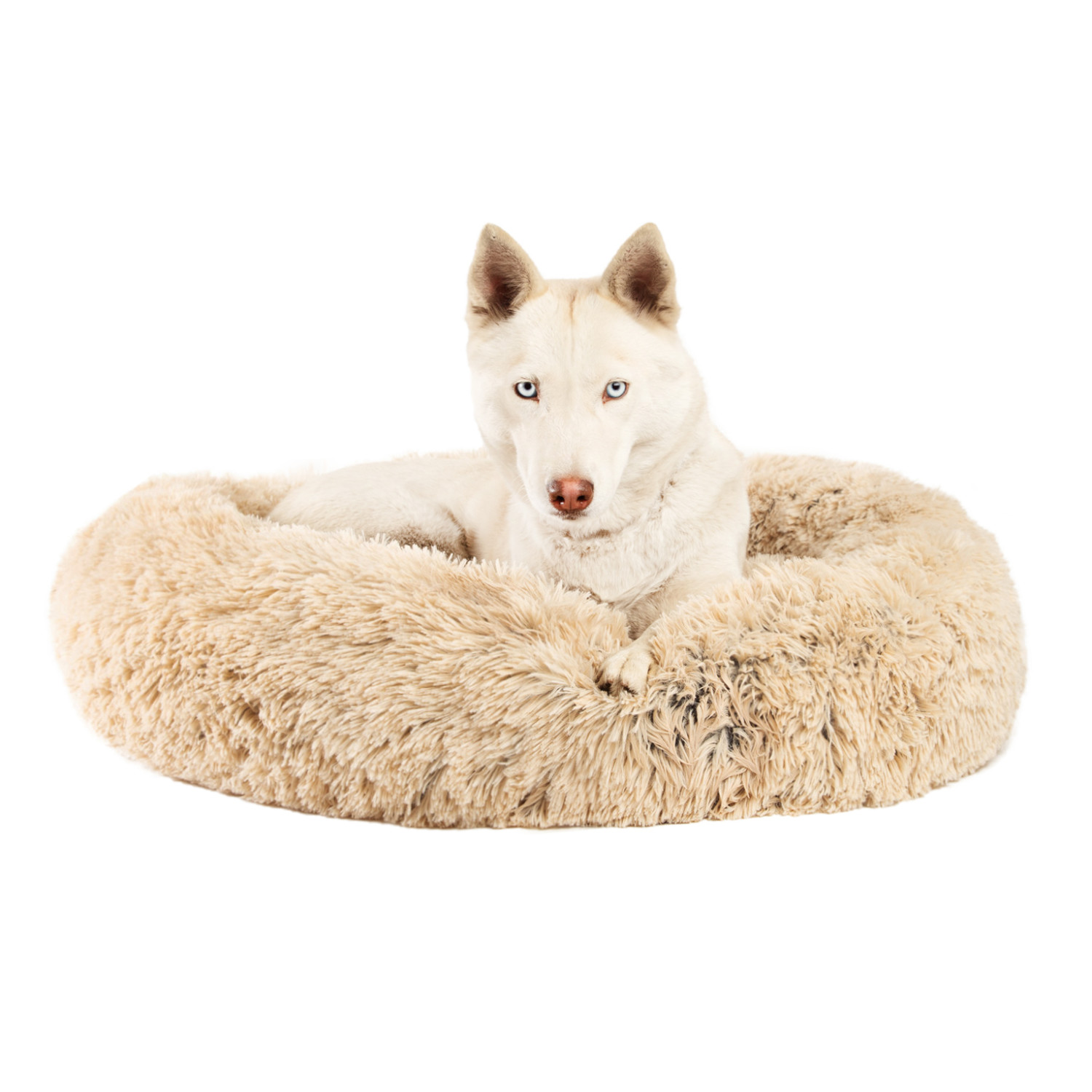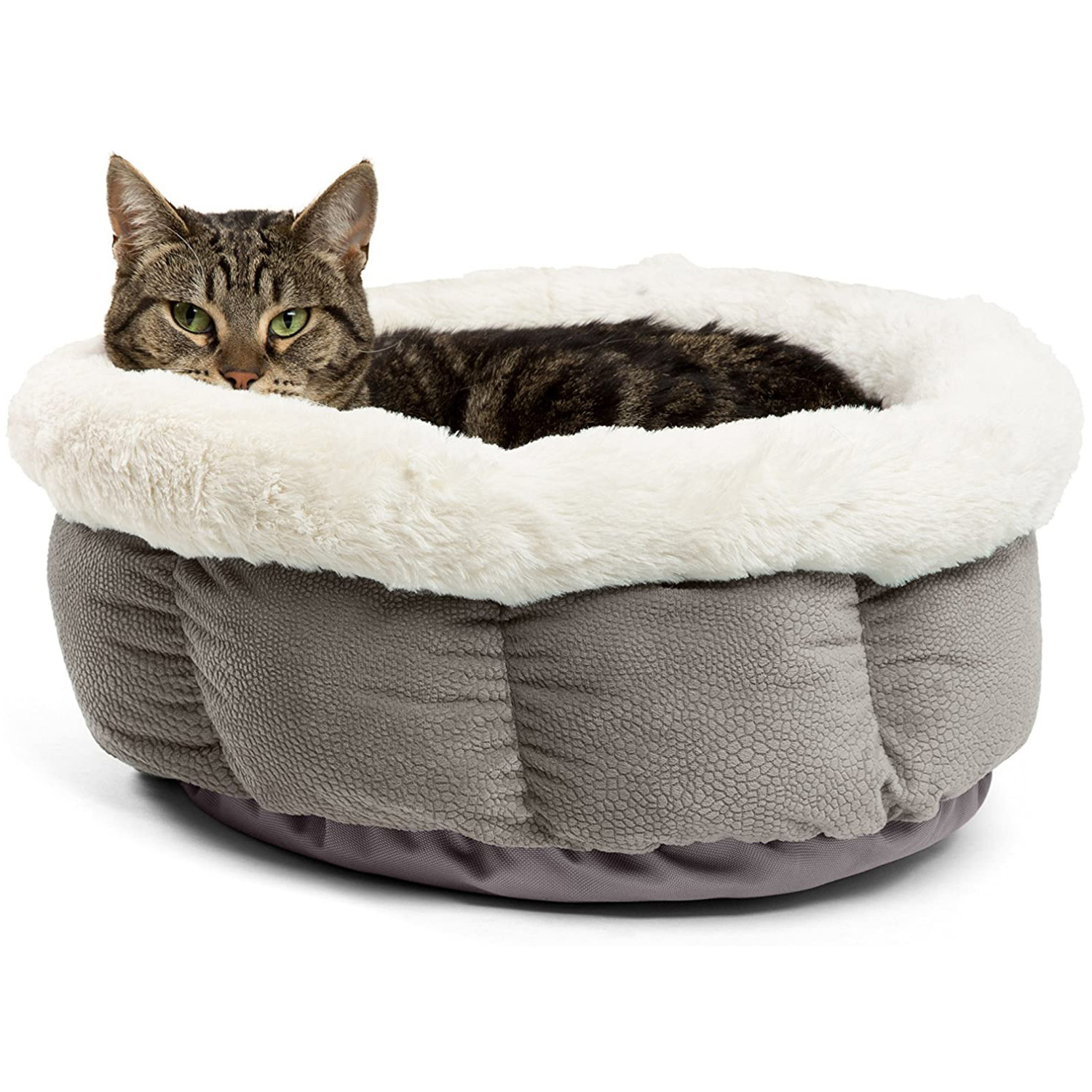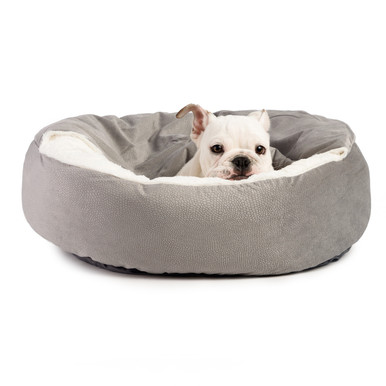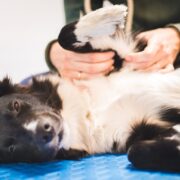Nothing makes you feel more special than your cuddly little pooch snuggling up next to you, but sometimes, next to you isn’t enough. Even dogs that aren’t supposed to be lap dogs may climb up into your lap for a variety of reasons.
Dog owners with larger dogs will even have them jump up on top of them to show their love or maybe it’s because they want to mark their territory! When you’re wondering why is my dog sitting on top of me as you gasp for breath, well, there are a few reasons to consider. Let’s look at several possible reasons for this very common dog behavior.
They’re Showing You the Love
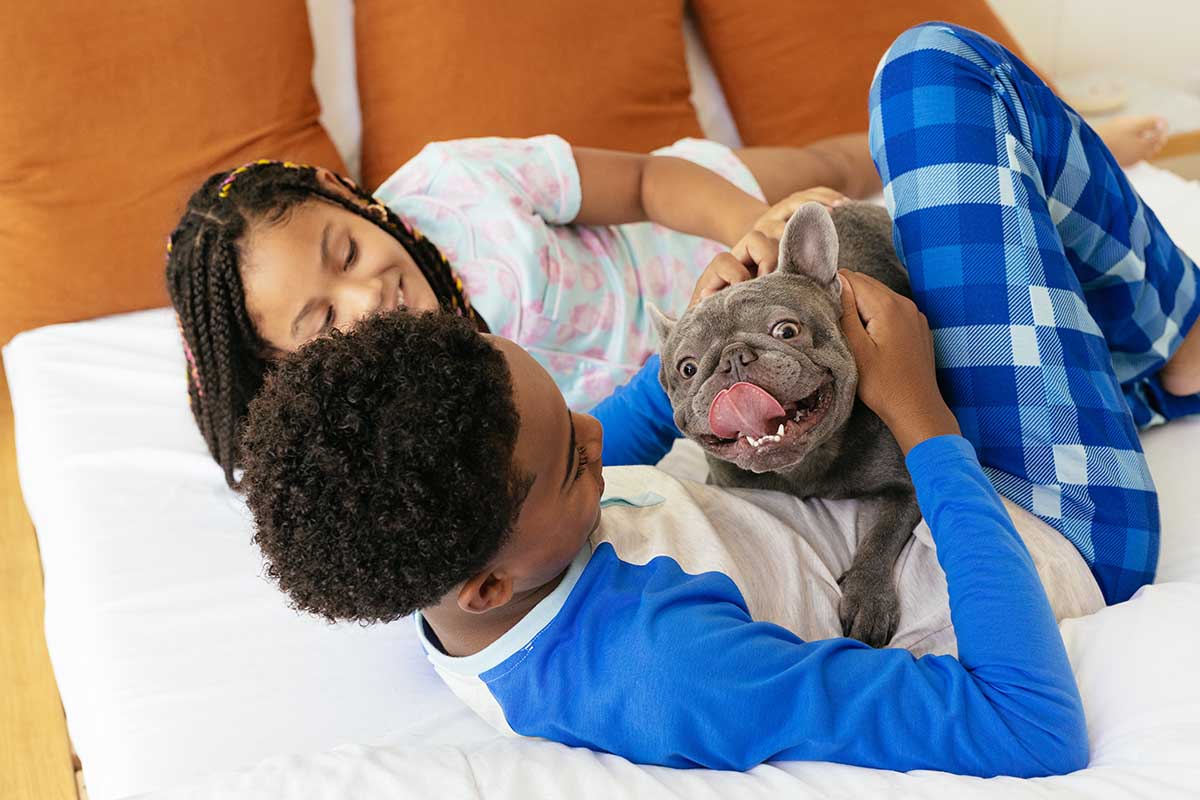
There are several dog breeds that are particularly loving and like being very close. Those small dogs like Chihuahuas, Bichon Frises, Shih Tzus, and Maltese aren’t just carried around because they’re small; they’re also very loving, and they become closely bonded (sometimes over bonded) to their owners.
Other larger dogs like mastiffs, Irish setters, and golden retrievers are often very loving dog breeds too. Even Great Danes like to get a little cuddle time every now and again just because they love you.
If your dog jumps up and sits on your chest, that’s one way they show you love, but another way they do this is to sit on your feet. It’s similar to your friend sitting next to you on the couch. Your dog might not jump up on top of you because they prefer the feel of the carpet or the cool texture of the tile, but they’ll sit on your feet instead.
Whether on top of you or on top of your feet, it’s your dog’s way of getting a little physical contact which they find comforting.
It’s a Learned Behavior
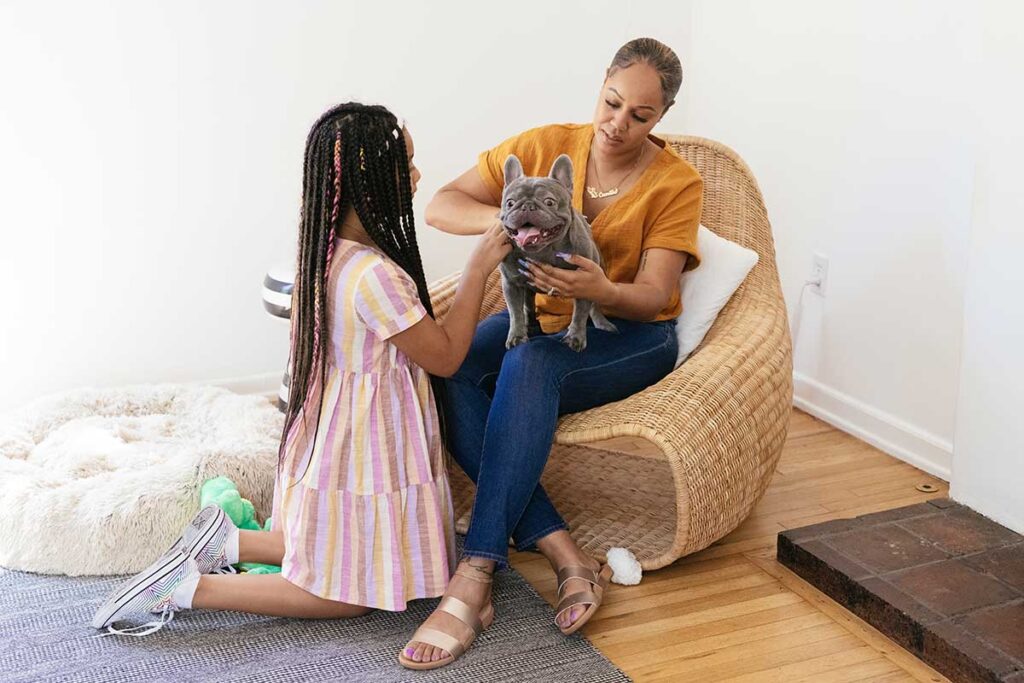
Most pet owners appreciate their pooch’s attempts to get close to them whether at their feet or on top of them. They pet their dog and snuggle with them which acts as positive reinforcement for the behavior.
When you give your dog that positive reinforcement, you are effectively rewarding them for the behavior. Your dog has found a comfortable spot to lie down, and you’re telling him that’s a good thing to do which makes him all the more likely to continue doing it.
This is true no matter if your dog sits on your feet or your chest — positive reinforcement is a very effective dog training tool, and they will continue with the behavior as a result.
They Like to Cuddle
It’s also true that sometimes your dog just likes to cuddle. They want to bond with you, and it’s something that helps you feel better about life too!
To your dog, you’re part of the pack, and they want to feel close to you. They want to snuggle and get closer to you, the top dog in the pack. Let’s face it, after a long day at the office, nothing feels better than to have someone welcome you home by wanting to be close to you.
In the wild, this type of dog behavior bonds pack members to one another and helps keep the peace. Your dog might not be a wild animal anymore, but those behaviors are still part of their pack mentality.
They Think They’re In Charge!
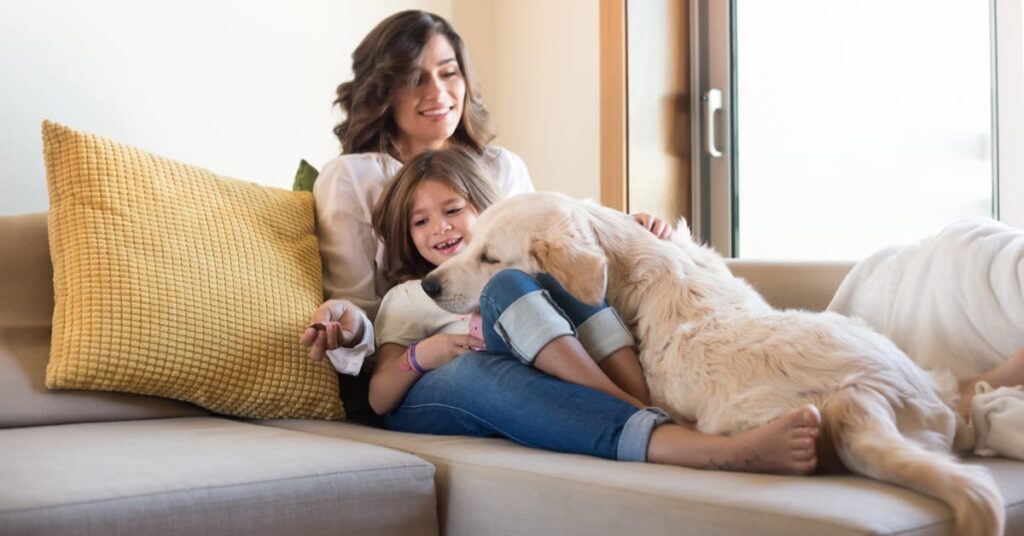
Another possible reason your dog sits on your lap is to show that they are the dominant one in the pack. They might not feel as though they are dominant over you, but it can be a way to show dominance over other animals in the household.
They come to see your lap as a kind of throne, and the fact that they’re in the catbird’s seat — as the case may be — means they are dominant. You can often tell this is the reason if you find that your dog sitting on your lap every time another animal comes near.
They may even show aggressive behavior toward anyone who comes near you (resource guarding), and if this happens, you’ll want to discourage that type of behavior. You might even need to get a dog trainer to help to get this stopped. Dog training is never a bad idea for any dog as a matter of routine, but it becomes necessary with this type of aggressive behavior.
It’s Playtime!
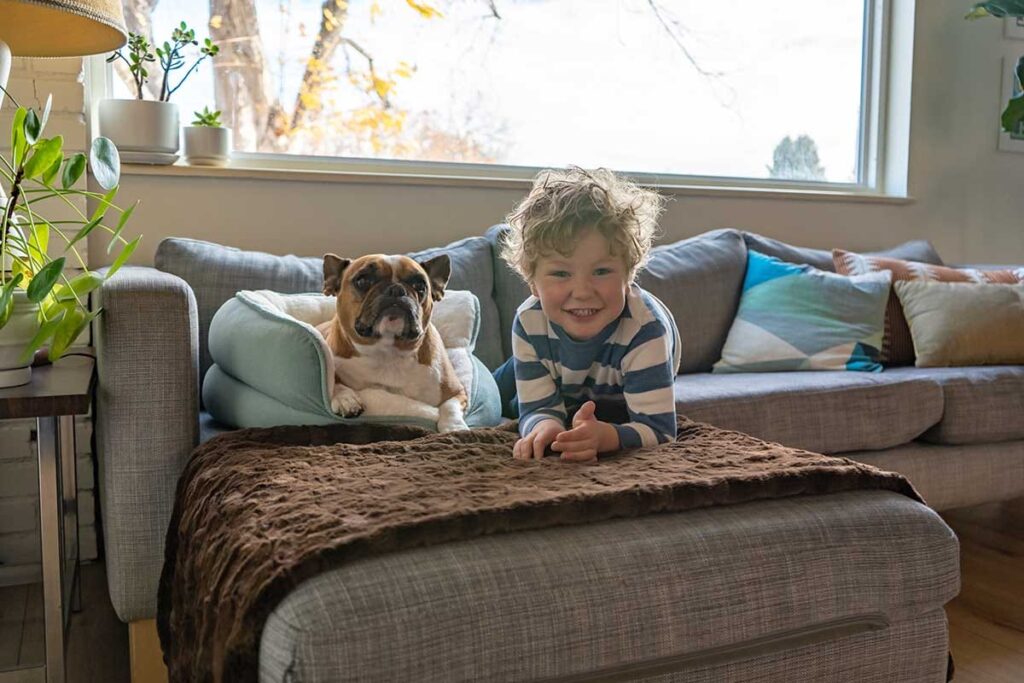
Another possible reason your dog jumps on your lap is that it’s their way of initiating playtime. This usually happens when you’re on the floor or ground, and your dog sees this as your way of telling them to come to play.
If this is the reason for your dog’s behavior, you’ll likely notice them doing some other behaviors like nuzzling you or licking and whining. You’ll also see some of their playtime body language like having their backside up in the air while the front of their body is down (also known as a “play bow”).
They’re beckoning you to come and play, and why not? Everyone needs a little playtime every now and again.
To Mark You as Their Territory
Dogs use scent to communicate with other dogs, and they have scent glands in several locations on their body. When your dog sits on your lap and rubs on you, they are likely spreading that scent on you so that other dogs will know you belong to them.
As with dominance-related behaviors, if you notice this happening more frequently when other dogs or pets are around, it’s likely because they want them to know who you belong to. It’s their way of saying, “This person is mine!”
You Make Them Feel Safe
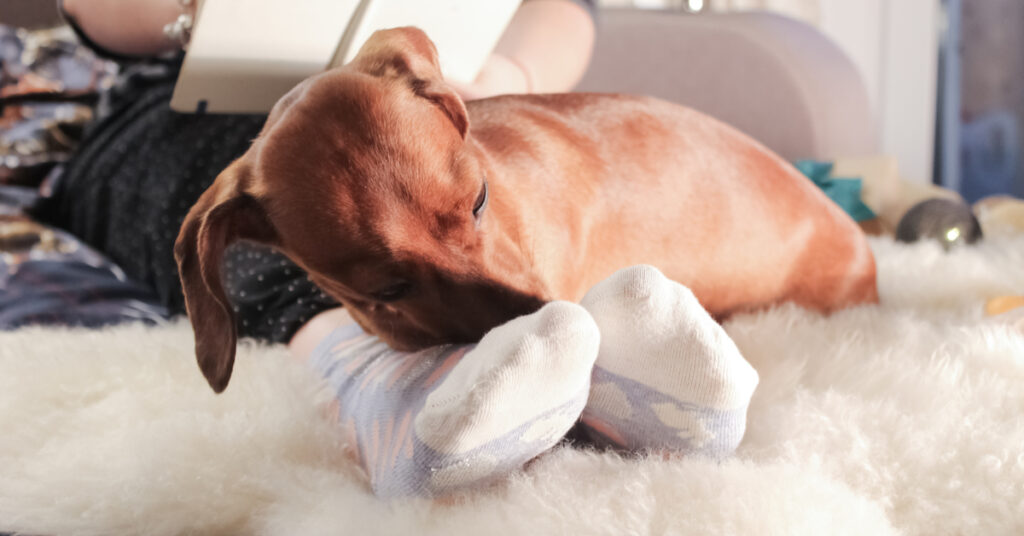
Another possible reason your dog sits on you is that you make them feel safe. They trust you, and particularly if you have had them since they were a puppy, you’re someone they know will protect them.
This isn’t a problem as long as your dog is using you as a safe haven so they can build confidence rather than because they are using you as a safe spot to engage in what is called fear aggression.
Fear aggression is simply aggression motivated by fear. It’s the most common form of aggressive behavior, and you can tell from their body language that your dog is afraid and not just trying to be mean. Working with a dog trainer can help you build your dog’s confidence so he won’t feel the need to be aggressive.
Separation Anxiety
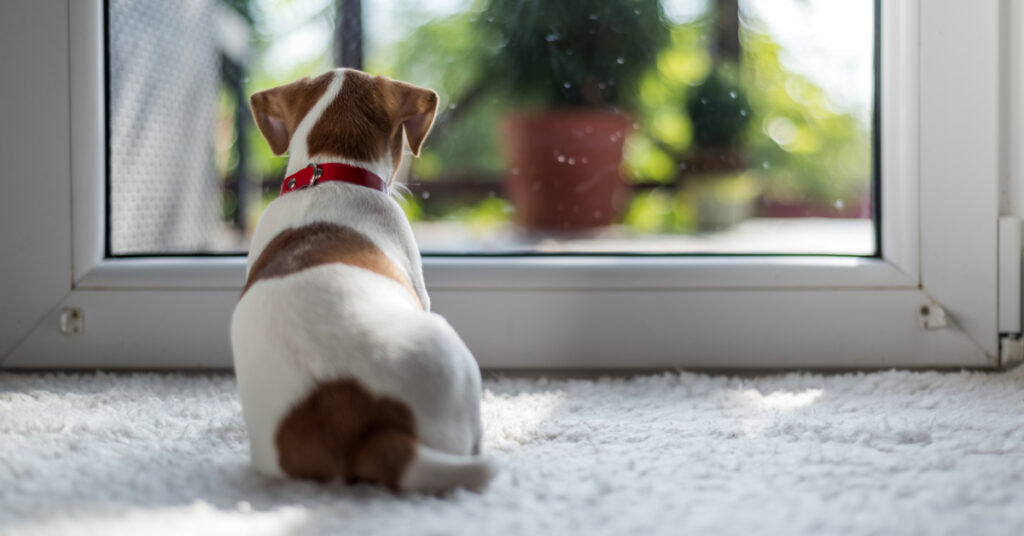
Another very common reason for your dog sitting on you is separation anxiety. Dogs with this problem want to be by your side all the time. When you leave the house without them, they will cry, whimper, and sometimes resort to destructive behavior to get your attention.
They will also sit on top of you to keep you from leaving. You can know if this is the reason if your dog exhibits other behaviors associated with anxiety such as excessive panting or drooling.
This is not a situation that you can ignore. You’ll likely need to work with a dog trainer to help your pooch get over these feelings of anxiety. He needs to learn how to be by himself when you’re not around, and dog training can help him to learn how to do just that.
You Might Be In His Way
It’s also possible that your dog sits on you because, well, you’re in his spot! You might be on a part of the couch he considers to be his dog bed, and if that’s the case, he’s spent a lot of time marking that spot with his scent.
He definitely considers it his territory, and he’s not going to give it up easily. As the ‘pack leader,’ you have to make it clear to your dog that you sit where you want.
It is possible your own dog can come to see you as a subordinate member of the pack, and if that happens, you’ll have all kinds of problems getting him to do what you want. Dog training can help here as you will need to train your dog to find another comfortable spot to sit.
Maybe He’s Bored
Your dog sitting on your lap can also indicate he’s bored and wants something to do. He’s trying to get your attention and give him some quality time together.
Taking him for a walk or having a little playtime can help to stimulate him so he feels like he’s getting enough of your attention. Remember, he loves you and wants to spend time with you. It’s also good for you to get out and have some fun with your best friend.
What If Your Dog Doesn’t Sit on You?
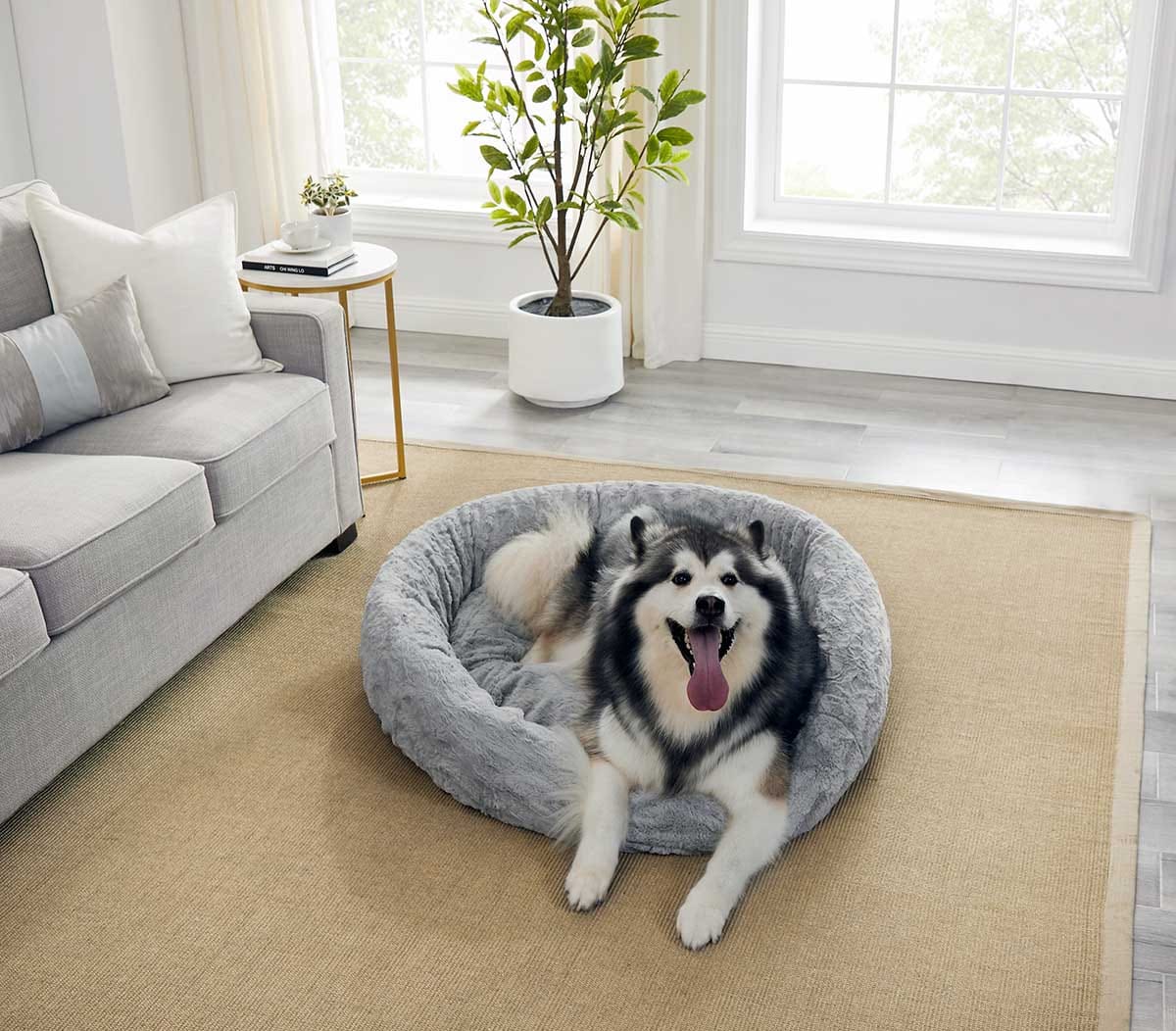
Don’t be too concerned if your dog doesn’t sit on you. It doesn’t mean he doesn’t love you or consider you to be the top dog. It might just be that he’s not a touchy-feely kind of pooch.
Your dog simply might not need that much physical contact to enjoy being around you. He might have other ways to show you that he loves you like following you around or bringing you his favorite toy to play with him.
Just like people, dogs have different ‘love languages,’ and particularly if you have a large dog, you might be happy that sitting on top of you isn’t one of them.
How to Train Your Dog Not to Sit on You
If you don’t mind your dog sitting on you, there’s no problem, but if you don’t like it or have a large dog that you don’t want sitting on top of you, then you might want to discourage the behavior. That’s also true if your dog is using sitting on you as a way to engage in aggressive behaviors toward other people or animals.
Of course, the easiest thing to do when your dog sits on you is to simply stand up every time they try to do that. If you just try to push them off of you, they might see that as playtime behavior, and if they think that, it will just encourage them to keep trying. To avoid that, standing up is better — just stay standing until he gets the idea.
You can also teach your dog to sit on your lap only when you give them permission and invite them to do so. You can start introducing a command word like “up” or “lap.” Say the word, and bring your dog up onto your lap. Then you can reward them with a treat or other form of positive reinforcement.
If your dog is already in a bad habit of sitting on you, you might need to work with a professional dog trainer or behaviorist to help you get them out of the habit. This is particularly true if they are behaving aggressively toward you or other people or animals. That will involve a little more dog training to resolve.
Final Thoughts
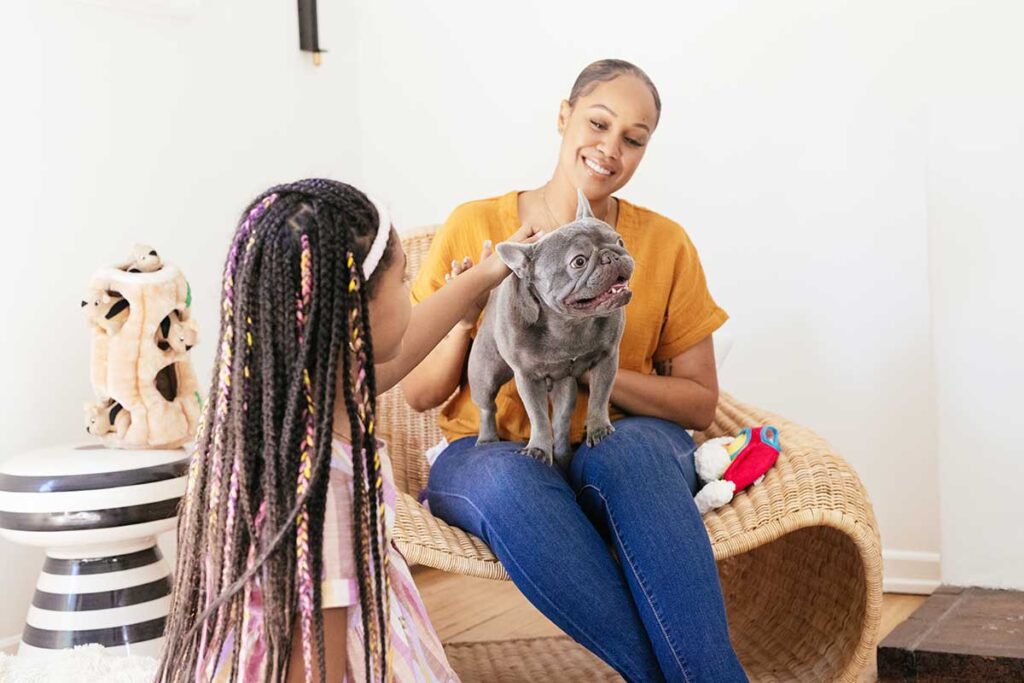
Your dog sees the bond between you as a strong bond between pack members. Because of that bond, they will engage in a variety of behaviors as a way of communicating with you. Sitting on your lap, on your feet, or on other parts of your body is just one of those communication tools.
Your dog sitting on you may be his way of saying he loves you, he feels safe around you, or that you are his territory. As long as he isn’t acting aggressively towards you, other people, or other animals, and as long as you’re okay with it, this kind of behavior doesn’t present a problem.
On the other hand, if he is acting aggressively or if he is a large dog that simply weighs too much to sit on you comfortably, then it’s time to ask him to find another comfortable spot to rest. A little dog training and positive reinforcement can ensure that both of you are comfortable with where he sits.
Tired of being a human chair? Get them a bed they can’t resist.
The Original Calming Donut Shag Cat & Dog Bed
$59.99 $30.00
Give your pet more than just a dog bed! Best Friend’s by Sheri is the original creator of the most popular dog bed that has surfaced the internet in recent years: The Calming Donut Dog Bed. This innovative cuddler shag design provides better sleep, supports joints, and offers a calming, self-warming effect. The donut cuddler is carefully crafted with durable, vegan nylon and filled with AirLoft fibers,…
Cuddle Cup Dog & Cat Bed, 17×17
$24.99
A PROTECTIVE DESIGN FOR SUPERIOR SLEEP! Owning a pet can make your home feel a little safer. And just like humans animals like to feel protected too. Unfortunately most cat and dog beds have an open pillow-like design that can leave your pet feeling exposed or vulnerable. With a Cuddle Cup by Best Friends by Sheri you can help create a secure sleeping environment! Our design starts with a round shape that…
Cozy Cuddler Ilan Cat and Dog Bed, Grey, 27X27
$44.99 $44.95
Help your pet feel comfortable and secure! whether they’re afraid or feeling anxious it’s not uncommon for dogs and cats to hide under the bed or other furniture. Not only does it provide a sense of security but it might also feel warmer and more comfortable. with bolstered walls providing head and neck support pets can lay in whichever position is best for them! The overstuffed walls and cushion are…
